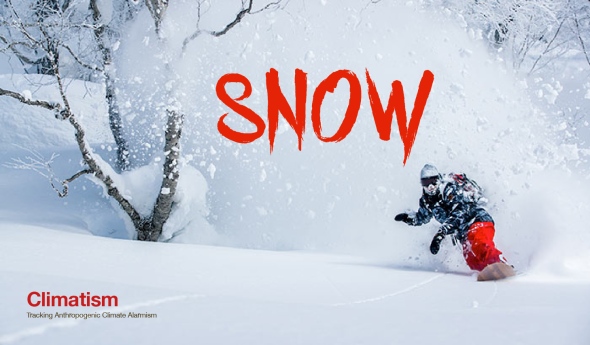Study Shows Organic Food Is Worse For The Climate
Written by Chalmers University of Technology
Written by Chalmers University of Technology
Written by Nafeez Ahmed

Rare earth metals are essential to solar panels and wind turbines—as well as electric cars and consumer electronics. We don’t recycle them, and there’s not enough to meet growing demand.
Written by Tracey Watson

No longer content to tinker with the genetic design of crops and humans, scientists – at the behest of the U.S. Military – are now turning their attention to the world’s oceans.
Written by Jack Guy

Humans have unusually globular (or round) skulls and brains compared to our ancient ancestors — including our closest extinct cousins the Neanderthals — and a new study provides a possible explanation as to why.
Written by Ashley Strickland

The Geminid meteor shower peaks this week, so hope for clear skies that will let you see a beautiful show of green fireballs on Thursday and Friday. This will be the last — and strongest — meteor shower of the year, according to NASA.
Written by www.world-nuclear.org

Molten salt reactors operated in the 1960s. They are seen as a promising technology today principally as a thorium fuel cycle prospect or for using spent LWR fuel.
A variety of designs is being developed, some as fast neutron types. Global research is currently led by China. Some have solid fuel similar to HTR fuel, others have fuel dissolved in the molten salt coolant.
Written by Thomas Corriher

As part of a lawsuit settlement with several consumer groups, the F.D.A. was finally forced to publicly admit that all “silver” dental filling are poisoned with mercury. These facts have been known, and covered up, for 30 years.
The dental amalgam attacks the brain as it is absorbed into the blood, and fumes that are emitted whenever one of its victims chews.
Written by Ashley Strickland

NASA’s first asteroid sample return mission, OSIRIS-REx, reached the asteroid Bennu only a week ago, but it’s already learning more about this time capsule from the early solar system.
Written by Dr Benny Peiser

Scientists have concluded that the Great Barrier Reef can no longer be saved because it is so damaged. The plight of the reef is partly due to the “extraordinary rapidity” of climate change, according to experts.
Written by Donald Scott

A new scientific paper attempts to explain a mystery at our planet’s South Pole.
A team of investigators from the British Antarctic Survey discovered a localized area where the Antarctic Ice sheet is melting “unexpectedly quickly.” Using radar, they found that some of the ice in a three kilometer thick layer appears to be missing.
Written by Jack Guy

The fearsome disease known as the plague might help explain a mystery that has puzzled scientists for years.
Written by Jamie Spry

The problem with lying or perpetuating a scam is that you have to be aware of the spin you’ve spun to get you there.
IN the realm of climate and weather, you pray to god (or Gaia) that the prognostications and rules, as laid out by the “97%” of ‘experts’, come to fruition or go close enough to bolster your position.
Written by Stephen Crothers

Contemporary astronomy and cosmology are so burdened with abstruse mathematics and bewildering ideas that it is not surprising that any interested person, student, professional, or layman alike, finds it well nigh impossible to navigate through the vast literature, let alone gain an understanding of it.
Written by Bruce Thompson

The passing of President George H. W. Bush and the ruckus caused by the Yellow Vests in France make this a good time to review the aftermath of Operation Desert Storm in Kuwait.
Written by Jay Lehr

For three decades, global warming alarmists have harassed society with stories of gloom and doom as a result of the carbon dioxide emitted into the air by the burning of fossil fuel.
Written by William Walter Kay BA LLB

There was no “climate change conspiracy.” After the 1973 oil price shock many Western governments committed to reducing their countries’ dependence on petroleum.
These commitments included initiatives promoting alternative energy. Programs were announced in broad daylight, without reference to climate change.